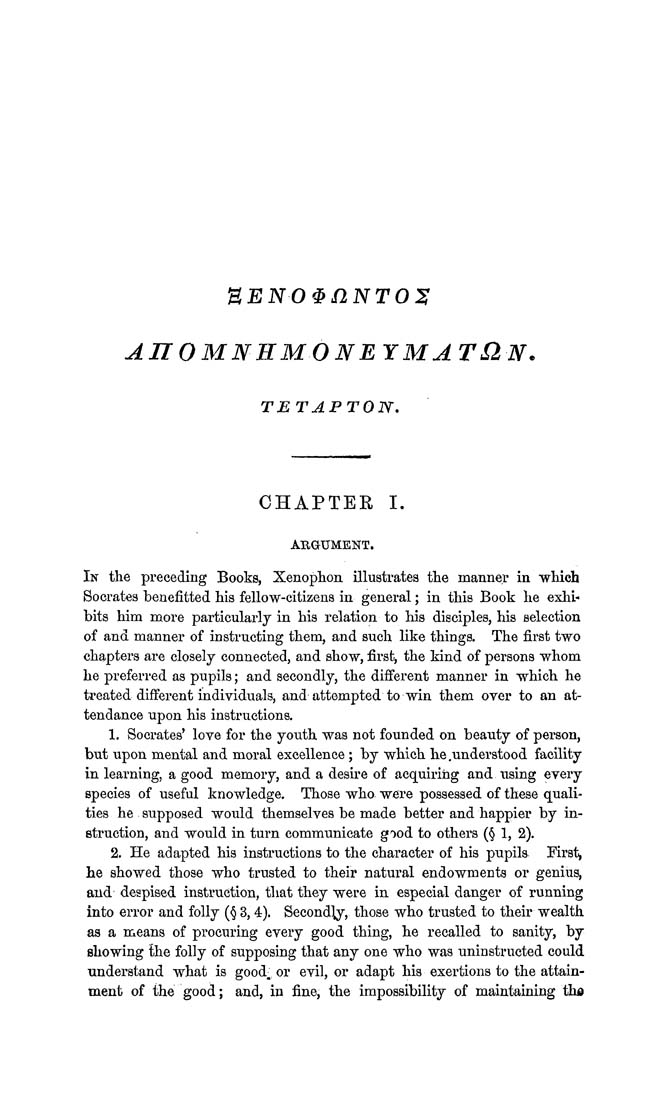'SENO^SINTOS
AnOMNHMONEYMATaN.
TJETAPTON.
CHAPTER I.
AEGUMENT.
In the preceding Books, Xenophon illustrates the manner in which
Socrates benefitted his fellow-citizens in general; in this Book he exhi¬
bits him more particularly in his relation to his disciples, his selection
of and manner of instructing them, and such like things. The first two
chapters are closely connected, and show, first, the kind of persons whom
he preferred as pupils; and secondly, the different manner in which he
treated different individuals, and attempted to win them over to an at¬
tendance upon his instructions.
1. Socrates' love for the youth was not founded on beauty of person,
but upon mental and moral excellence; by which he .understood facility
in learning, a good memory, and a desire of acquiring and using every
species of useful knowledge. Those who. w^re possessed of these quali¬
ties he supposed would themselves be made better and happier by in¬
struction, and would in turn communicate good to others (§ 1, 2).
2. He adapted his instructions to the character of his pupils Firsts
he showed those who trusted to their natural endowments or genius,
and despised instruction, that they were in especial danger of running
into error and folly (§ 3,4). Secondly, those who trusted to their wealth
as a means of procuring every good thing, he recalled to sanity, by
showing the folly of supposing that any one who was uninstructed could
understand what is good, or evil, or adapt his exertions to the attain¬
ment of the good; and, in fine, the impossibility of maintaining the
|








